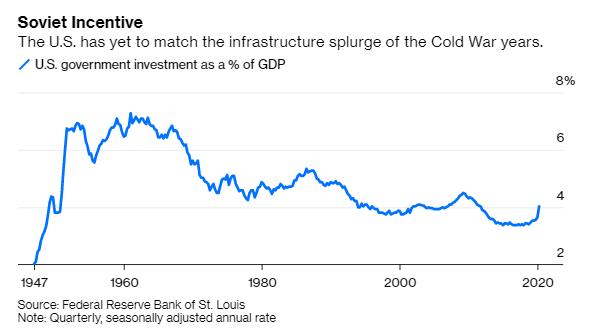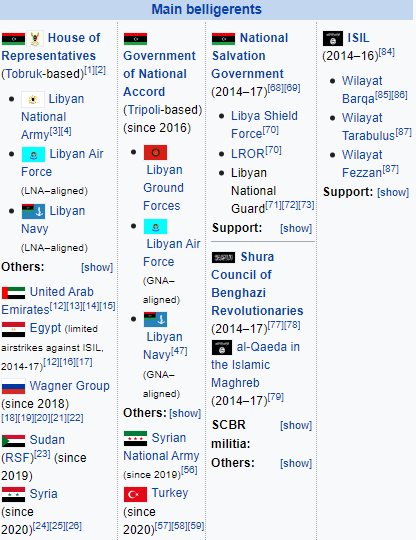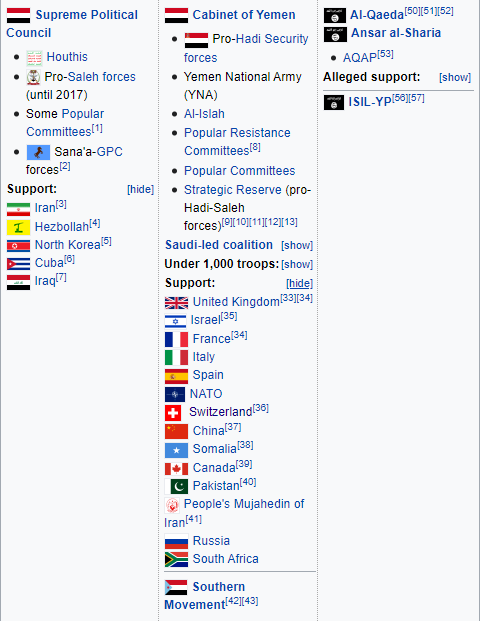
1/In today's @bopinion post, I discuss the challenge from the Chinese model of political economy.
Has China found a more effective way to run a country? (Maybe.)
And if so, what should we do about it? (Steal their best ideas and discard the rest.)
bloomberg.com/opinion/articl…
Has China found a more effective way to run a country? (Maybe.)
And if so, what should we do about it? (Steal their best ideas and discard the rest.)
bloomberg.com/opinion/articl…
2/China's rapid growth is not, by itself, a reason to think the Chinese model is superior to the American model.
After all, China is still much poorer than the U.S. It's a lot easier to grow fast from a low base -- just build a lot of stuff and copy foreign technology...
After all, China is still much poorer than the U.S. It's a lot easier to grow fast from a low base -- just build a lot of stuff and copy foreign technology...
3/But in recent years, China has advanced to the technological frontier in many areas. That's something few middle-income countries are capable of doing.
For example, China is clearly in the top rank of nations when it comes to A.I. technology.
nature.com/articles/d4158…
For example, China is clearly in the top rank of nations when it comes to A.I. technology.
nature.com/articles/d4158…
4/Chinese companies are leading the race to build the world's 5g wireless networks -- an important and impressive feat.
asia.nikkei.com/Opinion/How-Ch…
asia.nikkei.com/Opinion/How-Ch…
5/China is leading the world in many areas of drone technology. That's commercially important, but the Armenia-Azerbaijan war is showing that it's also going to be very important militarily.
weforum.org/agenda/2018/09…
weforum.org/agenda/2018/09…
6/China is home to the world's fastest trains. It's a leader in genetic engineering. It's launching a probe to Mars.
China is clearly now an advanced nation in the technological sense, which makes it a real peer competitor to the U.S. -- or to any other country.
China is clearly now an advanced nation in the technological sense, which makes it a real peer competitor to the U.S. -- or to any other country.
7/Meanwhile, there are areas of policy in which China has been doing better than the U.S. and many other advanced nations.
For example, China has been very good at avoiding recessions.
bloomberg.com/opinion/articl…
For example, China has been very good at avoiding recessions.
bloomberg.com/opinion/articl…
8/Avoiding recessions via bank-driven stimulus did come at a cost -- an overhang of bad debt. But so far it appears that's a cost that China can live with and manage.
wsj.com/articles/fancy…
wsj.com/articles/fancy…
9/China also handled COVID-19 much more effectively than many countries, and MUCH more effectively than the U.S. Their growth is bouncing back rapidly, even as the U.S. recovery slows.
bloomberg.com/opinion/articl…
bloomberg.com/opinion/articl…
10/People are starting to notice this string of successes.
The Economist, long known as a staunch defender of economic liberalism, recently entertained the notion that Xi Jinping may have found a way to make state capitalism work.
economist.com/weeklyedition/…
The Economist, long known as a staunch defender of economic liberalism, recently entertained the notion that Xi Jinping may have found a way to make state capitalism work.
economist.com/weeklyedition/…
11/So while China's model has not yet proven superior to the U.S. model of liberal capitalism, it's now POSSIBLE that it's better. It's no longer clear that the U.S. is ahead of China in many ways that matter.
Which brings us to the question: What do we do to stay ahead?
Which brings us to the question: What do we do to stay ahead?
12/The answer: We do what we've done in the past.
Identify our rivals' best ideas and tweak our own model a bit in that direction.
This is the American way. And it has worked for us before.
Identify our rivals' best ideas and tweak our own model a bit in that direction.
This is the American way. And it has worked for us before.
13/During the Cold War, the USSR seemed to be pulling ahead in science, with Sputnik, etc.
What did we do? We invested a ton in science, shoring up our technological dominance.
What did we do? We invested a ton in science, shoring up our technological dominance.

14/That same trick will work again!!
Passing @RoKhanna's Endless Frontier Act is a great first step.
bloomberg.com/opinion/articl…
Passing @RoKhanna's Endless Frontier Act is a great first step.
bloomberg.com/opinion/articl…
15/In the 50s, the USSR seemed to be on the verge of overtaking us economically, with a big state-led investment push. That turned out not to be true. But just in case, we launched our own program of state-led investment: The interstate highway system!
army.mil/article/198095…
army.mil/article/198095…
16/Now, similarly, we could launch another big infrastructure push (which Trump promised to do but never did).
We can start by building a national electrical grid that can handle modern energy sources, as @drvox and others explain:
vox.com/energy-and-env…
We can start by building a national electrical grid that can handle modern energy sources, as @drvox and others explain:
vox.com/energy-and-env…
18/And where in the Cold War we built the suburbs, now we can densify the suburbs and add trains!
bloomberg.com/opinion/articl…
bloomberg.com/opinion/articl…
19/The Cold War also spurred the U.S. to improve STEM education.
In a similar vein, we can now bail out America's flailing universities.
bloomberg.com/opinion/articl…
In a similar vein, we can now bail out America's flailing universities.
bloomberg.com/opinion/articl…
20/All of this will require a lot of federal government spending.
That's fine. China has shown that austerity is a counterproductive idea, as long as you spend money on things that will produce a return for society overall.
Research, infrastructure, and education will do that.
That's fine. China has shown that austerity is a counterproductive idea, as long as you spend money on things that will produce a return for society overall.
Research, infrastructure, and education will do that.
21/America's strength is to learn from rivals' successes without mindlessly copying their approach. We did it to beat the USSR, and we can do it again to stay ahead of China.
22/Our job is not to sit here and shout that the American model is better than the Chinese model.
That is the path of complacency, of chauvinism, of willful stupidity, and -- ultimately -- of decline.
Instead, we must ADAPT AND WIN.
That is the path of complacency, of chauvinism, of willful stupidity, and -- ultimately -- of decline.
Instead, we must ADAPT AND WIN.
23/We cannot and should not copy China's authoritarianism (much as Trump would like to).
Instead, we can and should implement better, American-style versions of its investments in research, infrastructure, and education.
We can do this!!
(end)
bloomberg.com/opinion/articl…
Instead, we can and should implement better, American-style versions of its investments in research, infrastructure, and education.
We can do this!!
(end)
bloomberg.com/opinion/articl…
• • •
Missing some Tweet in this thread? You can try to
force a refresh










